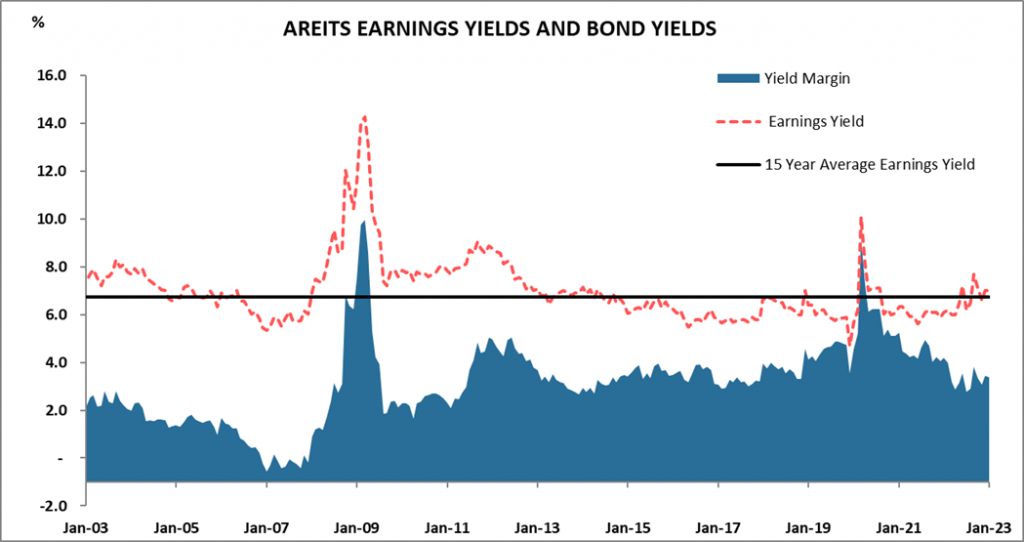By Chris Owens, analyst, Atchison Consultants
Australian real estate investment trusts (AREITs), as represented by the S&P/ASX 200 AREIT Index, returned +8.1% in the month ending 31 January 2023. AREITs underperformed the S&P/ASX 200 return by 1.9% over the month.
Over the 12 months to January 2023, AREITs posted a total return of -8.3%, underperforming the S&P/ASX 200 return of +12.2%.
Sector Performance
Table 1 below shows the performance of AREITs for various periods ending 31 January 2023.
Table 1 – S&P/ASX 200 AREIT Accumulation Index Performance: Total Returns (31 January 2022)
Over the 3 years and 5 years to the end of January, the sector produced total returns of -2.1% and 4.9% per annum respectively.
Sector returns were led by Industrial A-REITs which returned +14.6%. Diversified A-REITs returned +8.5%, Office A-REITs returned +5.5% and Retail A-REITs returned +4.0%.
Table 2 below shows the income performance of AREITs for various periods ending 31 January 2023.
Table 2 – S&P/ASX 200 AREIT Accumulation Index Performance: Income Returns (31 January 2022)
The income component of the total return was 2.6% for the 12-month period to January. Annual volatility of income returns was 2.7%, which is low when compared with other asset classes.
AREITs were trading at an earnings yield of approximately 7.0% at the end of the month, higher than yields of both cash and Commonwealth Government bonds. The spread of the earnings yield over the 10-year government bond yield remained steady at 3.4%.
Changes over time of the spread between the earnings yield of AREITs and the 10-year government bond yield are shown in Chart 1.
Market Review
Abacus Property Group, a property fund manager, has announced a plan to create a $3 billion listed property trust by spinning out its Storage King facilities. This move will provide real estate investors with a fresh opportunity to invest in the booming self-storage market. Additionally, this move could help unlock inherent value in Abacus’ own stock, which has been trading at a significant discount to its asset values, along with other listed property trusts, due to the impact of rising interest rates.
According to Steven Sewell, Abacus’ managing director, the company has invested $1.2 billion into self-storage assets over the past five years, giving it sufficient scale to be separately listed with its own capital structure. The new property trust, to be known as Abacus Storage King REIT and trading under the ticker of ASK, will have a 127-asset portfolio, including 108 trading stores with over 568,000 square metres of space and 19 developments. The self-storage component of Abacus currently has a 93.2% occupancy rate, yielding 5.5% on an annualised basis.
Mr Sewell stated that the self-storage market has attractive market fundamentals supported by macroeconomic tailwinds, such as an imbalance in supply and demand for self-storage space, densification of residential property and the growth of e-commerce. The announcement of the new trust coincided with Abacus’ 2023 interim result, which reported a 0.4% lift in earnings to $81.4 million. However, the statutory profit fell by 73.2% to $84.5 million, after booking in a much smaller revaluation gain than in the previous corresponding period.
The Abacus Property Group is currently trading at $2.82, well below its $3.86 net tangible asset value.




